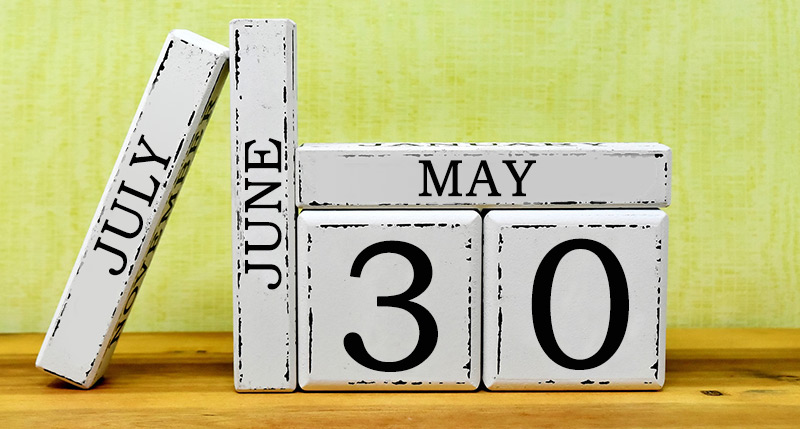Whole30: A Food Lover’s First-hand Account
Chances are if you’ve considered changing your food habits in the last five years, you’ve heard of Whole30. But perhaps you don’t know it as anything other than “that diet where I can’t eat bread” (true, you can’t). If so, let us tell you about the methodology and mission behind Whole30 and give you an insider’s look at what it’s like to go 30 days without donuts.
Whole30 was created in 2009 by Melissa Hartwig after she experimented with a version of the program herself. The basic premise: Eliminate entire groups of foods that are unhealthy, over-processed, or known as common irritants for 30 days. This includes all dairy, grains (that no bread thing again), legumes, added sugar and alcohol. By giving your body an opportunity to recover from any adverse effects of these foods, you are essentially starting over again. After 30 days, you can slowly add those food groups back into your diet, paying very close attention to how your body reacts. In this way, you’ll be better able to realize which foods trigger unhealthy reactions.
It sounds daunting, doesn’t it? A whole month with no pasta? No rice? No milk or sugar in your coffee? We asked a friend who recently completed the program to give us her perspective on what it was really like living the Whole30 lifestyle.
What inspired you to try Whole30? Was your family on it too?
A few friends had done Whole30 and liked it. I wanted to change some of my bad habits (too many desserts, too much snacking), so I borrowed their Whole30 book. I did it mostly alone, although the dinners I cooked were for my whole family. My husband thought most of them were pretty good!
Was it difficult to find recipes? What about going out to eat?
Finding recipes was easy. I had the book, which included some basic ideas, but I relied heavily on Pinterest and followed the official Whole30 recipes Instagram account. Whole30 is very time-intensive because you are cooking everything, but I liked that. I love food and I enjoy cooking, so it was a good way to broaden my skills and work with new ingredients (hello, almond flour and coconut aminos). I even made my own ketchup! It was easy and tasted so good.
I didn’t go out to eat while I was following the program. There were a few times when I met others out, but I made sure I ate beforehand so I wouldn’t be tempted to dive into a pile of nachos.
What was the biggest challenge in sticking to this diet?
Overall, I didn’t find it as difficult as I’d imagined, which was a nice surprise. I would say the hardest thing is that you have to be committed to planning and executing! You need to plan all your meals for an entire week. It sounds crazy, but it’s the best way to ensure you stick to the program. And then you have to execute—by actually cooking the meals you planned. It definitely requires dedication because there is a considerable time investment.
I stopped at Day 28. I started a new job and didn’t want the added stress of dealing with Whole30 while also navigating a new work situation.
What surprised you most about Whole30?
One of the things I know about my diet is that I don’t eat enough protein, because I don’t eat a lot of meat. Whole30 helped me focus on getting protein into my meals, especially breakfast. I couldn’t believe how full and happy I was all morning long.
It was also a great way to bond with friends. Turns out, I knew so many other people who’d gone through it, so it was great being able to lean on them for advice, recipes or just to complain!
Did the diet change your relationship with food?
It absolutely changed my perspective about certain things, namely that I have to stop relying on prepared foods to feed my family. It’s an easy trap to fall into when both parents work full-time, but if we focus on the things that are most important in life, then healthy food is at the top of the list. I’ve stuck to meal planning and cooking more meals from scratch.
It was also a good reminder that I need to be more vigilant about reading labels. In order to do that, I make more of an effort to grocery shop on my own. You just can’t make smart choices when you have two little ones trying to sneak Pop-Tarts into the cart!
What advice would you give to someone considering Whole 30?
I think the things that helped me most were reading about the program and trying to figure out if it would be a worthwhile experiment; finding great recipes; writing down (realistic) goals; and finding friends or family who will go on the journey with you.
Did you achieve your goal?
I didn’t have any major health or weight issues, so my main goal was just to tweak my normal habits. I’ve mentioned meal planning, and I’m grateful that I was able to make that a habit with Whole30. I’ve also given up milk and sugar in my morning coffee and learned how to make other healthy substitutions: coconut milk over cow’s milk; coconut flour over wheat flour; less sugar in everything.
Healthy eating isn’t a project with a completion date. It’s a continuous series of resetting, reevaluating and tweaking. In that sense, I definitely reached my goal of eating more healthfully.

